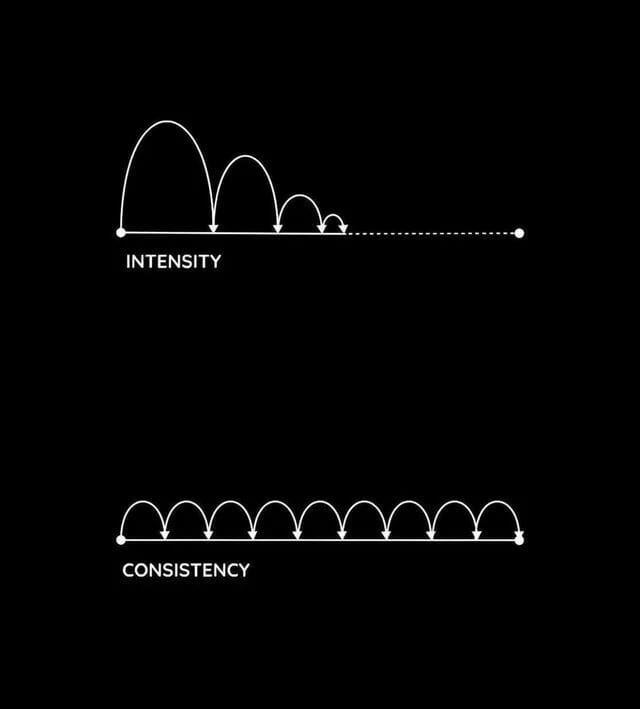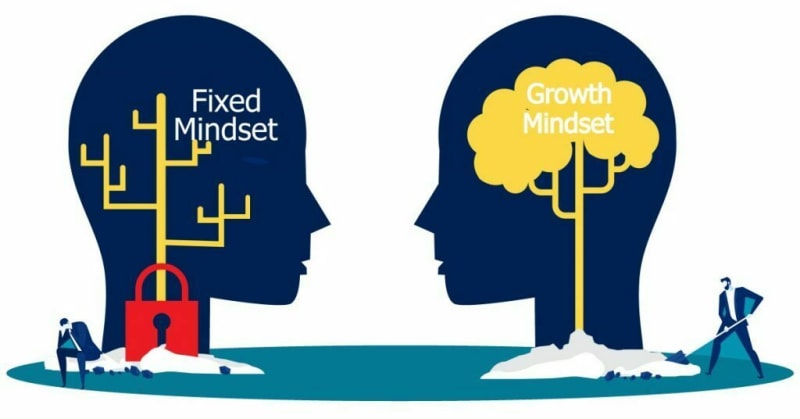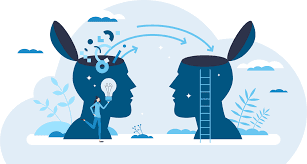Embarking on my journey as a software engineering student, the four years I've spent immersed in this dynamic field have provided me with invaluable experiences and insights. Through countless hours of coding, problem-solving, and collaboration, I've had the opportunity to grow wiser and more mature in ways I never anticipated.
I would like to reflect upon my journey thus far, sharing the lessons I've learned with aspiring students and self-taught programmers who are eager to navigate the world of software engineering. Whether you're just beginning your adventure or seeking to enhance your skills, I hope you find these insights helpful and inspiring.
- Overcoming Imposter Syndrome: Embracing Your Unique Path
In the captivating realm of software engineering, there's a formidable adversary that often lurks in the shadows, threatening to undermine our confidence and potential: Imposter Syndrome. It's that internal experience that makes us feel like we're inadequate, doubting our abilities despite our achievements and accomplishments. In simpler terms, it's that feeling of being stuck in a pit of self-doubt. Trust me, I've been there.
The software industry is a diverse landscape, populated by individuals with varying levels of experience. And within this mix, it's easy to fall prey to Imposter Syndrome, especially when we witness freshman students effortlessly creating full-stack apps while we're still honing our skills on a modest to-do list app with local storage for our graduation project. It took me a while to come to terms with the fact that everyone has their own unique way of understanding concepts, and our personal learning paces differ significantly.
It's crucial to remember that just because you couldn't accomplish something today doesn't mean you won't conquer it tomorrow. We must liberate ourselves from the destructive cycle of comparing our progress to someone else's journey—a journey that is entirely distinct from our own. Moreover, it's essential to recognize that intelligence and aptitude vary among individuals, and there will always be those who possess greater natural abilities. Instead of feeling threatened, let's embrace the opportunity to learn from these individuals, leveraging their expertise to enhance our own growth.
The key lies in accepting that we all have room for improvement while truly believing in the power of hard work and dedication. It is through consistent effort and a commitment to personal growth that we can overcome our self-doubt and evolve into better versions of ourselves. Remember, the true competition lies not with others, but with your past self. Believe me, years from now, you'll regret the time you spent feeling belittled, rather than channeling that energy into consistent work and progress.
- The Power of Consistency: Small Tasks for Steady Growth
There was a time when I approached tasks based on my whims and desires, without considering the profound impact of consistency. Little did I know that unlocking the power of consistency would completely revolutionize my life. It all began when I stumbled upon a remarkable book called "Atomic Habits" by James Clear. Its teachings reshaped my perspective, revealing the extraordinary results that can emerge from performing small tasks consistently over time.
At first glance, these daily habits may appear insignificant, almost inconsequential. However, their true power lies in their cumulative effect—an effect that can propel you towards remarkable achievements. Imagine committing yourself to solving a coding challenge every single day or consistently contributing to your GitHub repository. These seemingly small actions, when practiced consistently, have the potential to set you apart from your peers and foster substantial growth as a software developer.
I must admit, maintaining consistent habits can be a challenge. It requires discipline, dedication, and a willingness to persevere even when motivation wanes. But here's the secret: I'm continuously working on improving in this area, and I believe you can too. Together, we can unleash our potential by harnessing the power of consistency.
- Having a Growth Mindset - Embracing Lifelong Learning
Picture this: you write a piece of code, proud of your accomplishment. Three months later, you revisit that code only to find it irrelevant or even useless in light of the ever-changing industry standards. Technologies and coding practices that were cutting-edge just a few months ago may have become outdated today. Welcome to the fast-paced and dynamic world of the software industry.
In this industry, continuous learning is not just a luxury—it's a vital necessity. Never assume that you have reached the pinnacle of mastery in a particular skill, for believe me, those hard-earned skills can fade away if they're not consistently practiced and challenged. Resist the temptation to declare, "I've mastered this skill, so I no longer need to learn or revisit it." Such complacency can be detrimental to your growth as a software professional.
Instead, embrace the mindset of perpetual learning. Never shy away from difficult tasks and challenges that come your way. When faced with something seemingly impossible, ask yourself, "Why not?" View these challenges as opportunities for personal and professional growth. It is through tackling these difficult tasks that you'll experience true growth and humility to learn, and realize the vast expanse of knowledge awaiting you.
Let's remember one important truth: perfection is an elusive concept. While they say practice makes perfect, the reality is that practice can only make us better, not perfect. Accepting your imperfections and embracing a growth mindset is the key to continuous improvement. Recognize that you are not infallible, and there will always be room for growth and refinement.
- Focusing Your Expertise: Avoiding the Trap of Overwhelm
In the vast and ever-expanding realm of software engineering, it's all too easy to find yourself trapped in the clutches of overwhelm. As a beginner in this field, I've personally experienced the daunting nature of the myriad skills and specializations available. Python, data science, front-end development, mobile development, back-end development, machine learning—the options seem endless, and it's natural to feel overwhelmed.
Here's my advice: before delving deep into any specific field, take the time to gain a general understanding of the various domains. Explore crash courses, read overviews, and listen to experts sharing their insights on these fields. Learn about the challenges, advantages, and trends within each area. This broad knowledge will serve as a foundation upon which you can make informed decisions.
Once you've gained this general understanding, it's time to choose a field or two that align with your interests and the information you've gathered. However, it's important to commit to your choice once you've made it. Software development is inherently challenging, and it's common to encounter difficulties along the way. But rather than switching fields whenever the going gets tough, I encourage you to confront the challenges head-on and persevere within your chosen field.
Why is this important? Well, if you continually switch fields based on momentary preferences or fleeting motivations, you risk becoming a "jack of all trades" without a specific expertise—a scenario that may not be desirable to most companies. Instead, aim to cultivate a deep and focused skill set. While it's beneficial to have a general understanding of various disciplines, the true value lies in mastering one or two skills exceptionally well.
- Sharing Knowledge: Deepening Understanding and Fostering Collaboration
Learning in isolation can be a lonely journey, devoid of the enriching experiences that come from sharing knowledge with others. Richard Feynman a well known American physicist has a systematic approach to understand and explain complex subjects: the act of explaining those concepts to someone with no prior knowledge of the subject. By pretending to teach them in simple, understandable terms, we not only solidify our own comprehension but also uncover any gaps in our knowledge.
Imagine this: you're attempting to explain a challenging concept to someone unfamiliar with the topic. As you grapple with finding the right words and analogies, you begin to realize the areas where your understanding falls short. These gaps become opportunities for further study, enabling you to clarify and simplify your explanation. In this process, not only do you deepen your own knowledge, but you also enhance your communication skills—the ability to convey complex ideas in a clear and accessible manner.
In my university experience, I've noticed a tendency among students to be reserved in sharing their ideas and knowledge. Perhaps it stems from various reasons, such as fear of judgment or a belief that their insights are not valuable. However, it's essential to recognize that great achievements are often the result of collaboration, shared understanding, and collective teamwork. When we open ourselves up to sharing our ideas and knowledge, we create an environment conducive to growth and innovation.
- Be organized - Maximizing Productivity
As a software engineer, life is a whirlwind of activity and constant hustle. Without a well-defined routine and a commitment to staying organized, it's easy to get swept away in the chaos of competing tasks. Deadlines loom over every software project, demanding efficiency and focus. That's where the power of organization comes into play, enabling you to maximize your productivity and achieve your goals.
Imagine a scenario without structure—a sea of unfinished tasks and a constant battle with procrastination. We've all been there. However, by developing effective organizational habits, you can break free from this cycle and navigate your projects with ease. Prioritization is a key practice in maintaining organizational harmony. Identify tasks that truly add value to your growth as a developer, and don't hesitate to skip those that don't align with your goals. Trust me, you don't need them weighing you down.
It's important to acknowledge that the most impactful tasks often require our full attention and focus—qualities that can make them seem less enjoyable or enticing. This is why we tend to procrastinate on projects, assignments, or other important tasks. However, there are strategies you can employ to make these tasks more engaging and enjoyable. Consider setting up a reward system for each completed task, or tackle them first thing in the morning when your energy and focus are at their peak. By finding ways to infuse enjoyment and motivation into these tasks, you'll discover that they become easier to tackle, and your goals become more attainable.
- Seizing the Present: The Illusion of Endless Time
As a university student, it's easy to fall into the trap of thinking that time is an endless resource, and that there will always be ample opportunities for personal and professional growth. I vividly remember my early years, where days seemed to blend together, and I can't recall any significant accomplishments or meaningful experiences. It's as if those years vanished into thin air, leaving behind a lingering sense of missed opportunities.
The truth is, time flies faster than we realize. The early years of university pass by swiftly, and if we're not careful, we may find ourselves looking back with regret, wondering where all that time went. It's crucial to shatter the illusion of endless time and embrace the urgency of growth in the present moment.
Don't wait for tomorrow or some distant future to start learning, improving, and working towards your goals. The time to embark on your journey of personal and professional development is now. Every moment is an opportunity to invest your time and effort wisely, moving closer to the future you envision for yourself.
- Prioritizing Your Well-Being: Nurturing the Foundation of Success
In the fast-paced world of software engineering, it's all too easy to get caught up in the demands of our work, often at the expense of our health. Hours spent hunched over computers can lead to a sedentary lifestyle, posing potential risks to our well-being. It's essential to recognize the importance of self-care and make a conscious effort to nurture our physical and mental health.
One area of concern for many software engineers is the strain we put on our bodies. Hours of sitting can take a toll, particularly on our backs. Taking care of your posture and ensuring a comfortable workstation setup is crucial. Additionally, regular breaks to stretch and move around can alleviate stiffness and prevent long-term health issues. Remember, a healthy body lays the foundation for a successful career.
However, caring for your health goes beyond just physical aspects. Paying attention to your mental well-being is equally vital. In the midst of deadlines and high-pressure projects, it's easy to neglect self-care practices that nurture our mental resilience. Engage in activities that bring you joy and help you unwind. Whether it's hitting the gym, going for a jog, playing your favorite sport, or simply taking a walk in nature, find what resonates with you and make time for it. Prioritize your health, as it forms the cornerstone of your overall well-being.
- Embracing the World Beyond Screens: Nurturing Meaningful Connections
It's time to debunk the stereotype that software engineers are introverted, socially awkward beings. While there's nothing wrong with being introverted and enjoying moments of solitude, it's crucial to challenge ourselves to step out of our comfort zones and engage with the world around us. As software developers, we have a unique opportunity to understand and connect with people from diverse backgrounds, fostering healthy relationships and meaningful interactions.
Let's face it: spending 24 hours locked in a room, jumping from one social media platform to another, or immersing ourselves in video games is not a fulfilling way to live. While social media does have its merits, allowing us to promote ourselves and connect with like-minded individuals, there's immense value in face-to-face communication. By actively participating in industry events, meetups, and conferences, we expose ourselves to conversations that transcend the digital realm. These personal interactions provide us with non-verbal cues, tone of voice, and immediate feedback, refining our interpersonal skills and enabling us to collaborate more effectively with colleagues and stakeholders.
Stepping out into the real world also opens the door to new experiences that expand our horizons beyond our technical expertise. Engaging in activities or hobbies outside of our professional bubble introduces us to individuals with different passions and interests, enriching our understanding of the world. It's about finding a balance between online and offline interactions, leveraging the best of both worlds.













Top comments (2)
Thank u yohannes. I am freshman software engineer and am new to the field ... i've got really good insights.
I am glad you did.